Clean Cooking Highlighted as a Priority Climate Solution at the Africa Climate Summit
Clean cooking was in the spotlight at the Africa Climate Summit (ACS), an inaugural event hosted by the Government of Kenya and attended by tens of thousands of participants. The Clean Cooking Alliance (CCA) and its partners ensured that clean cooking was an integral part of conversations around climate action, investment, energy access, nature, and women’s empowerment, with one prominent media outlet writing that that the clean cooking sector was “among the most visibly represented at the Africa Climate Summit.”
A few highlights from the week include:
CCA’s CEO joined the First Lady of Kenya, the Second Lady of Ghana, and other leaders to highlight the important role of women and clean cooking in the energy transition for a sustainable future in Africa.
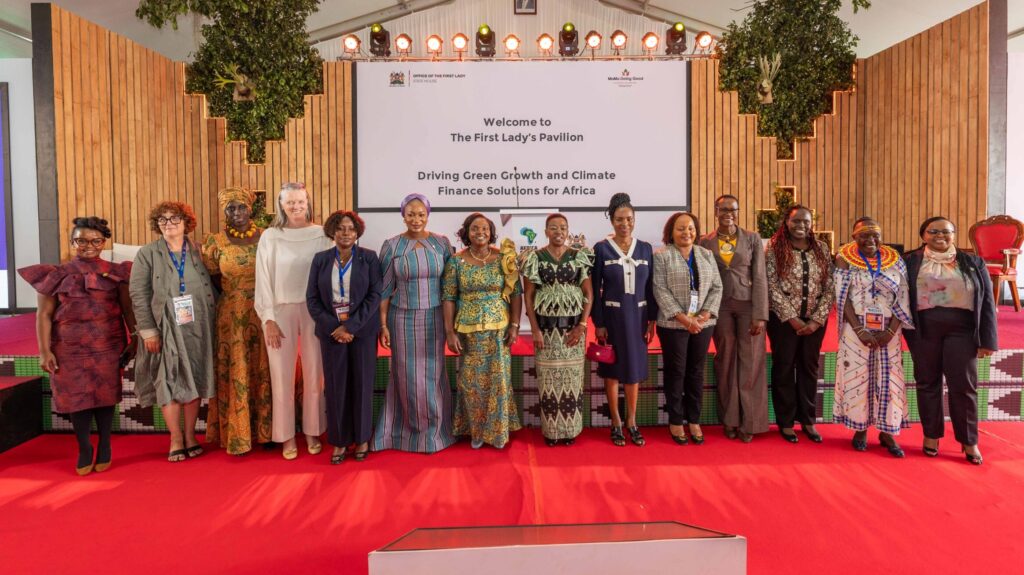
H.E. Rachel Ruto, First Lady, Kenya: “We need to adopt sustainable cooking practices in our homes for the sake of our forests and our health.”
Dymphna van der Lans, CEO, Clean Cooking Alliance: “The Africa Climate Summit has been a remarkable event. It has rightfully placed Africa at the center of the climate discussion and showcased the region’s potential for implementing climate solutions, including by prioritizing clean cooking.”
The Government of Kenya announced the inaugural Clean Cooking Delivery Unit, a team of experts embedded within the Office of the President to accelerate clean cooking access. The Government of Sierra Leone announced it will soon join Kenya with its own Delivery Unit. Each country’s Delivery Unit will be supported by a broader network, established and administered by CCA.
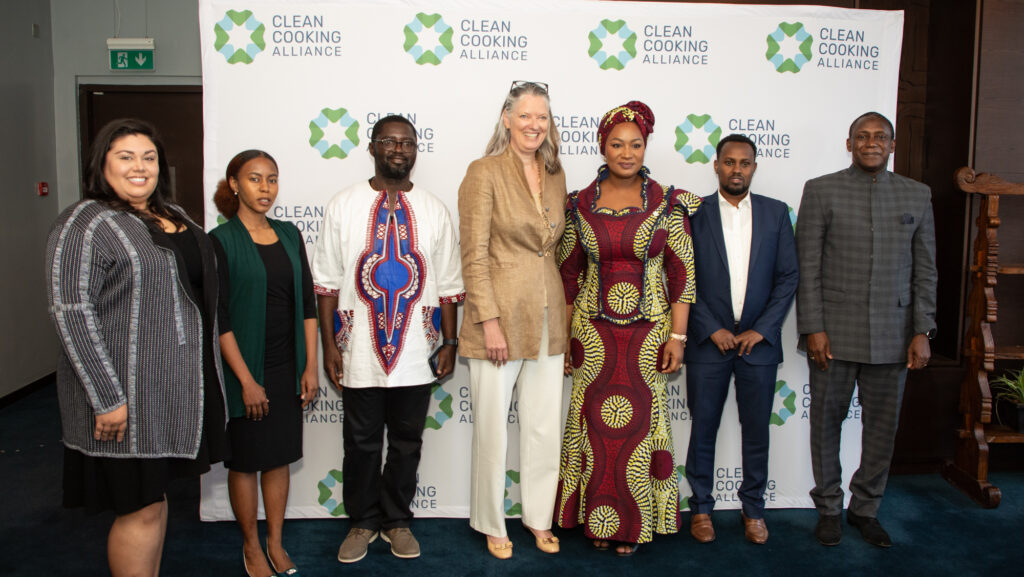
Ali Mohamed, Special Climate Envoy, Government of Kenya: “By fostering collaboration across Cabinet and adopting a systemic approach on planning and implementation, we aim to swiftly bridge the clean cooking access gap. We take great pride in pioneering this innovative governmental initiative, which ultimately aims at improving the quality of life for the people of Kenya.”
CCA announced the new African Conservation & Clean Cooking Collective, a catalytic initiative to mainstream clean cooking solutions into nature conservation and restoration activities in Africa. In collaboration with the African Wildlife Foundation and the African Development Bank, CCA aims to support landscape-scale clean cooking transitions that deliver positive impacts for climate, nature, and livelihoods.  Frederick Kwame Kumah, Vice President, Global Leadership, Africa Wildlife Foundation: “Restoration and clean energy transition must go hand in hand to achieve our collective climate adaptation goals. Clean energy must be made accessible with a just transition approach that fits within the African context.”
Frederick Kwame Kumah, Vice President, Global Leadership, Africa Wildlife Foundation: “Restoration and clean energy transition must go hand in hand to achieve our collective climate adaptation goals. Clean energy must be made accessible with a just transition approach that fits within the African context.”
CCA launched the Partnership Platform for Clean Cooking Finance to mobilize $100 million for clean cooking. Together with the African Guarantee Fund and the United Nations Capital Development Fund (UNCDF), CCA seeks to bring together a range of ecosystem players from across carbon and clean cooking markets to de-risk investments and create greater opportunities for investment.
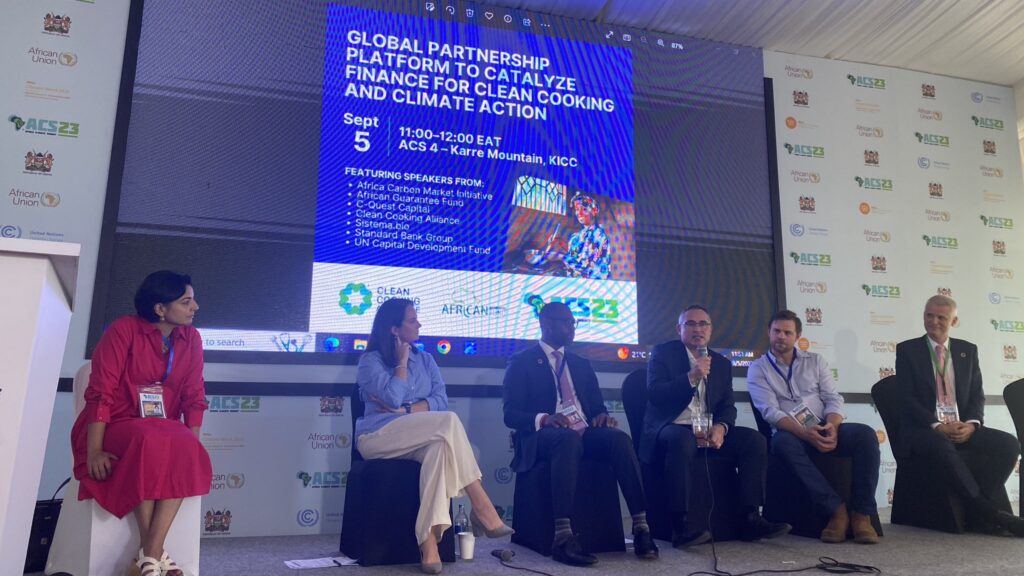
Lawrence Cole-Morgan, Executive Lead, Carbon Credit Trading, Standard Bank Group: “Bringing together a range of players with different focus areas, such as AGF on guarantees, CCA on coordination, technical assistance and market knowledge, and UNCDF on policy support and concessional capital, is extremely helpful to financiers considering new investments.”
As part of the ACS Expo, CCA hosted a Clean Cooking Hub, providing a high-visibility platform for more than a dozen clean cooking companies to showcase the latest innovations from across the ecosystem.
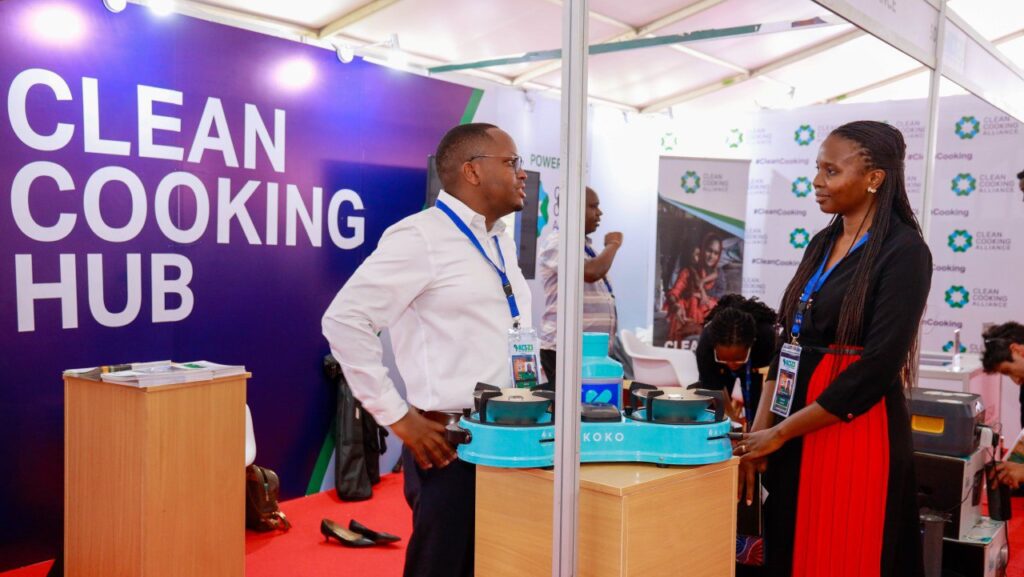
News article by Green Rising: “The clean cookstove sector is among the most visibly represented at the Africa Climate Summit in Nairobi.”
CCA hosted numerous side events on carbon finance, including:
- A consultation session on developing a new methodology for crediting emissions reductions from cookstove projects, hosted by the CCA-led Clean Cooking and Climate Consortium (4C). 4C continues to gather feedback and aims to open a formal commenting period for the full draft methodology in early 2024. For more information, contact climate@cleancooking.org.
- A meeting of the co-chairs of the CCA-led Responsible Carbon Finance for Clean Cooking Initiative (RCF4CCI), which represents over 350 stakeholders from across the clean cooking and carbon markets. RCF4CCI is currently finalizing a set of guiding principles to strengthen market confidence in clean cooking carbon projects while facilitating more investment.
- A workshop for clean cooking alliances on the fundamentals of the carbon market.
- A roundtable discussion for carbon project developers.
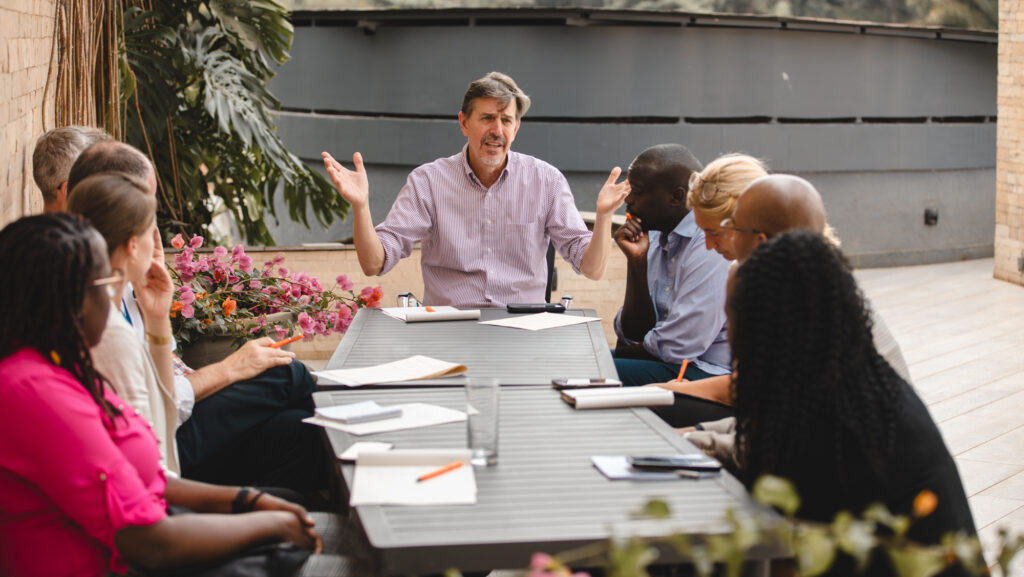
Donee Alexander, Chief Science and Learning Officer, Clean Cooking Alliance: “Getting this methodology right is vital for the clean cooking ecosystem, and we are working with a range of critical partners to address the challenges and opportunities that may come up in transitioning from existing methodologies.”
Partners from across the clean cooking ecosystem announced important developments, including:
- The Global Electric Cooking Coalition (GeCCo)—comprised of the Modern Energy Cooking Services, the Global Energy Alliance for People and Planet, Energising Development, and Sustainable Energy for All (SEforAll)—was launched, with the goal of facilitating a mass transition to electric cooking in at least 10 countries over the next seven years.
- The Modern Cooking Facility for Africa announced a partnership with BURN to accelerate access to affordable, high-quality electric cooking in five Sub-Saharan African countries.
- BURN unveiled its new electric cooking products, the ECOA Electric Induction Cooker and the ECOA Electric Pressure Cooker, which are Africa’s first locally designed and assembled modern e-cooking products.
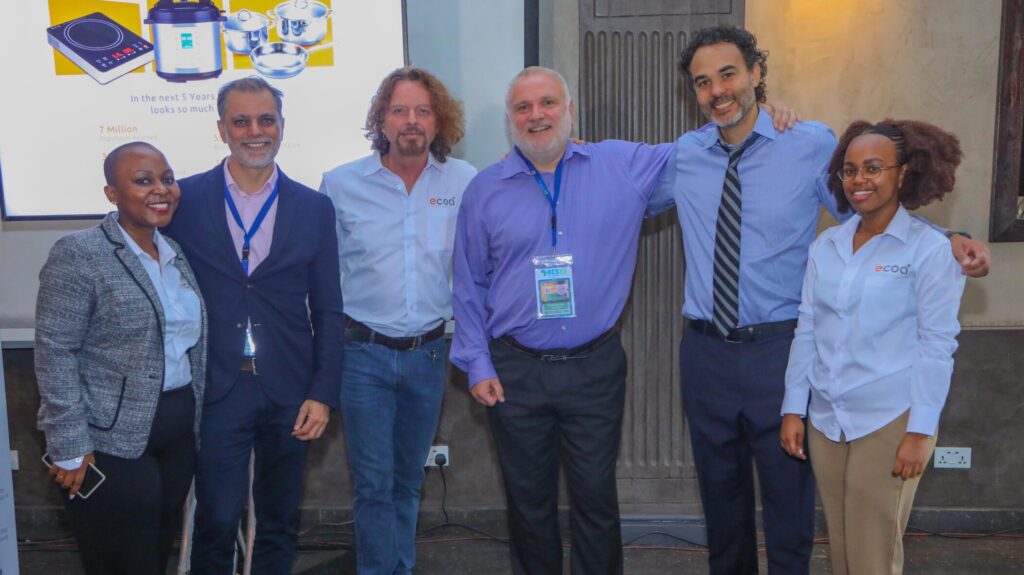
Cecilia Njenga, one of BURN’s pilot participants: “Previously, I would use three bags of charcoal in a day, amounting to 210 Kenyan shillings. It was lot to pay for. Now, what I used to spend for one day, I can use over 3-5 days.”
